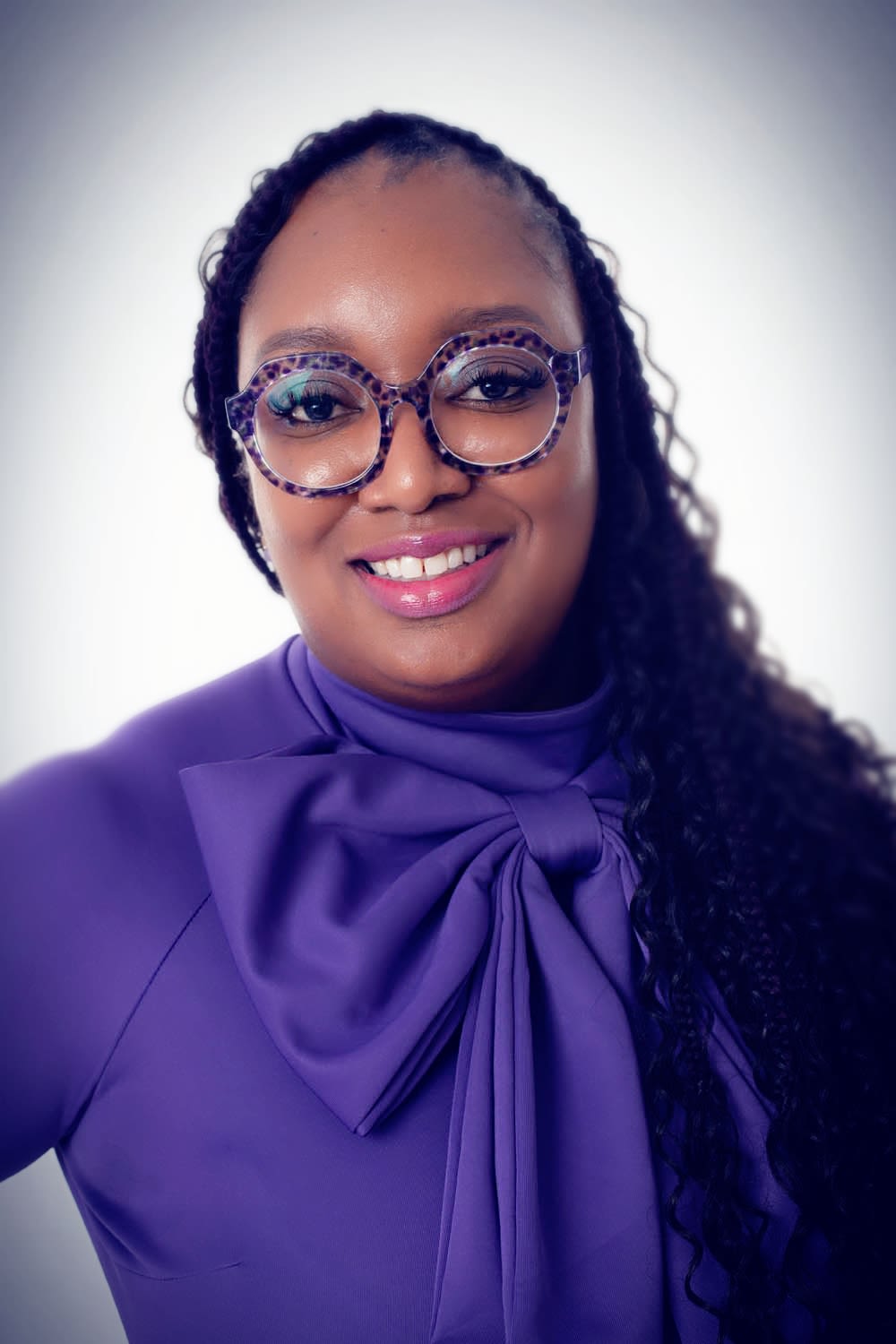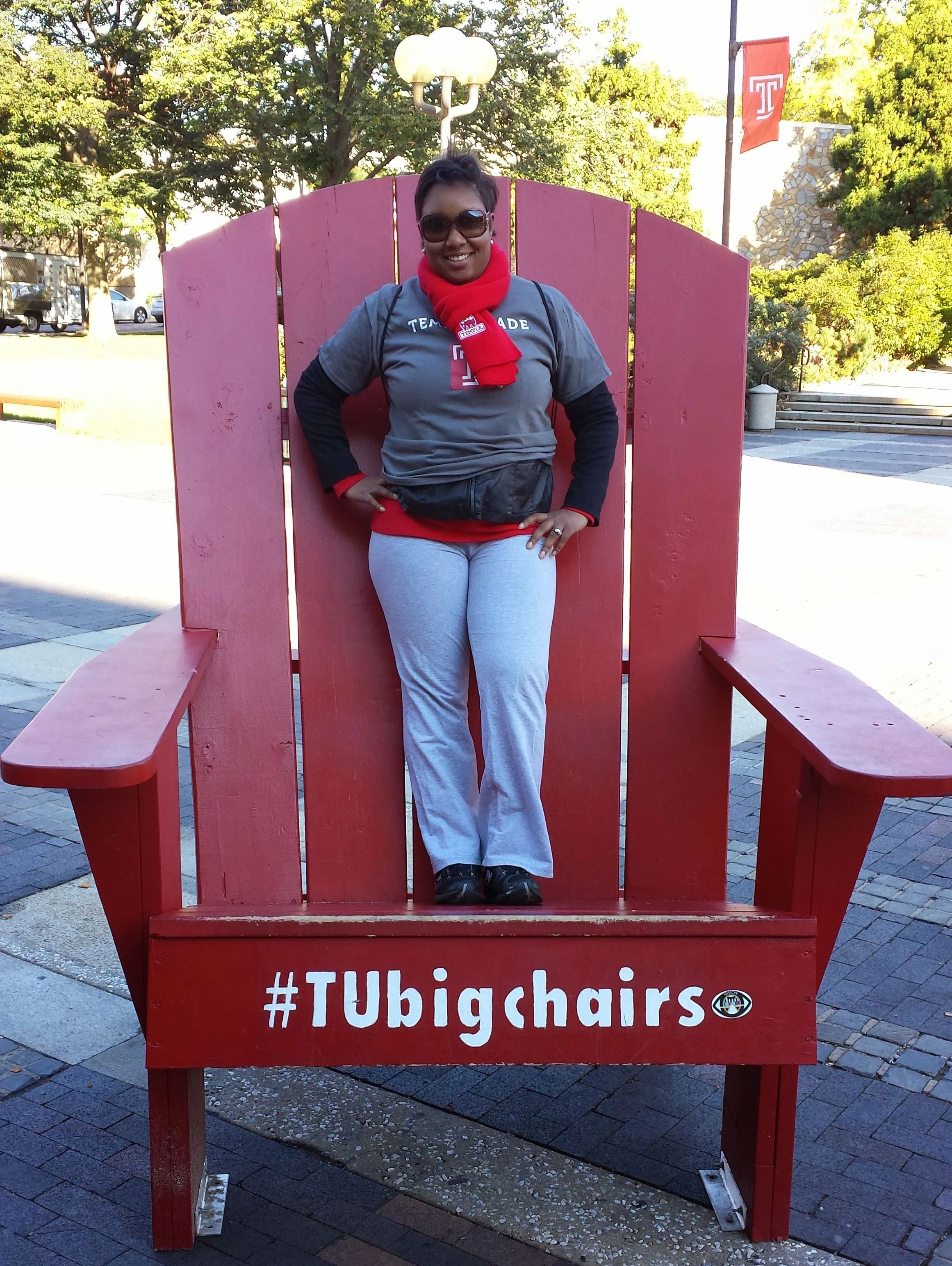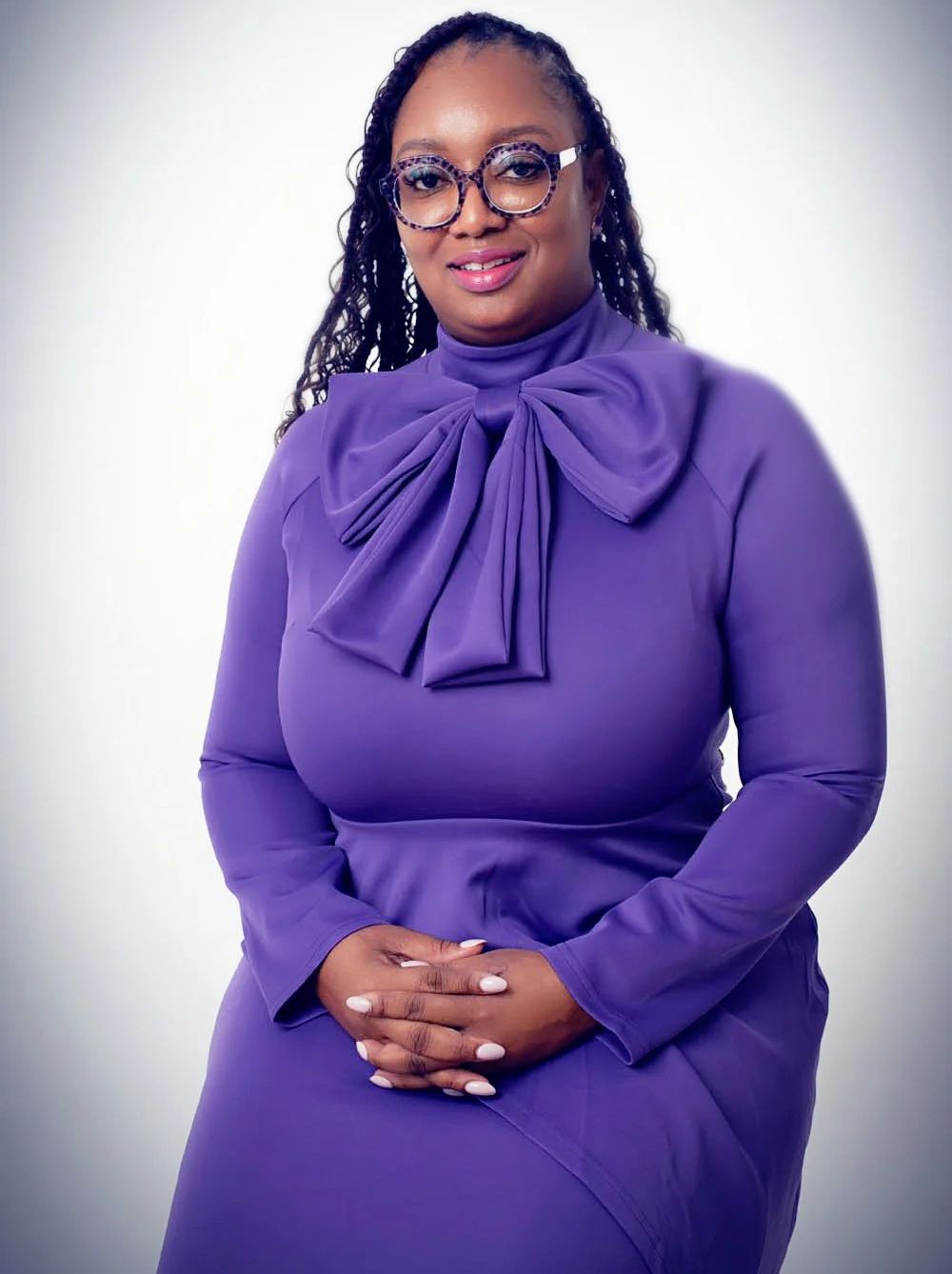Rashonda Harris Leads the Movement for Meaningful Change
As one of the few women of color in leadership, Rashonda Harris, FOX ’12, ’16, embraced the label “purple sheep” and made it her mission. Through Purple Sheep Consulting, she champions DEI with global partners, mentors emerging leaders, and recently endowed a scholarship to support the next generation of Owls.

Rashonda Harris, FOX ’12, ’16, is an educator, research administrator, DEI champion and owner of the award-winning business Purple Sheep Consulting. Purple Sheep Consulting helps research administration clients advance diversity, equity and inclusion (DEI) through training, education and development. By strengthening the practice of research administration, encouraging diverse perspectives and creating welcoming creative spaces for new ideas, Harris is making a bold impact on the future of global scientific research and a bright future for the next generation.
We sat down with Harris to discuss her journey from college to career, the importance of DEI, how to implement it, and why now was the right time to endow a brand new scholarship for the next generation of students.
The following Q&A has been condensed for clarity and conciseness.
Can you tell us about your path at Temple?
I got my human resource management BBA in 2012 with a minor in information systems and an HR people first certificate. I took a year off and then started my MBA at the Fox School of Business. I was recruited to work at Emory University in Atlanta, Georgia, so I relocated there with my family while finishing the program. While attending Temple, I was also a wife and mother, so I couldn’t join as many extracurriculars as I wanted. But I’m happy to say, as an alumna, I’ve given back and stayed active with the Temple community. I’m currently a board member of the Temple University Black Alumni Association. It’s extremely rewarding, and I’m proud to be Temple Made.
What did you do after graduation?
I built a portfolio of projects as a research administrator and DEI champion and became an adjunct faculty member for the research administration master’s program at Johns Hopkins University. Research administration is the administrative support of scientific research. We make sure researchers get awards to study everything from mathematics and engineering to disease and illness, and the awards are spent in compliance with the sponsors’ expectations.
How does Purple Sheep fit into your story? When and how did you get the idea?
My consulting business was influenced by the prejudice I faced as a young Black woman in leadership. After I received my first promotion, my co-workers talked about me like I wasn’t there. They mentioned my race and questioned my qualifications. Examples like this and other micro- and macroaggressions I faced made me want to be the Purple Sheep. I wanted to be a champion for others and a leader of change.
The business name is a product of my thesis, The Invisible Purple Sheep: An exploration into the invisibility of Black women in higher education leadership. A Purple Sheep is a person from a marginalized group that refuses to be overlooked or unseen. They do not blend in with white sheep, but they’re not ostracized like black sheep. They stand out because they are a force to be recognized. Purple is also meaningful because it represents royalty, hope and positivity.
How did you create your business?
I started consulting in 2008. It was my hobby, but I decided to create my firm after getting my edD so I could have a real business that would support me when I retire. But I had a conversation with a client about starting it after graduation, and he replied, “I will be your first customer if you start now.” That day, July 22, 2022, I applied for my LLC, and Purple Sheep came into existence.
What was the biggest obstacle you needed to overcome when starting?
The unknown. Learning what you don’t know about being a small-business owner can be challenging. But I’m also learning about my clients and how to support all their needs. One thing that sets Purple Sheep Consulting apart is we aim to leave you whole. Our tagline is we aim to inspire, not compete because when we complete the job, we want the client to have everything they need to become stronger and not need to keep coming back.
You mentioned earlier you were proud to be Temple Made; what does that mean to you?
Studying real-world case studies and learning how to adapt and be agile in business were my biggest takeaways from my program. I kept many lessons I learned during my MBA projects in mind when creating my business. But being Temple Made says more than your degree. Temple represents Philadelphia’s greatest strengths. As a native Philadelphian, I can speak to our community’s ability to persevere, adapt and overcome. So, when you’re Philly Made and Temple Made, you can rise to the top in any situation; you’re strong and a cut above the rest.
For those who don’t know, what does “diversity, equity and inclusion” mean?
DEI is about creating safe and inviting spaces for everyone and respecting each other for our individuality and unique, valuable contributions. Equity is equality, in a manner that allows everyone to succeed. For example, if we are 5'5" and can’t reach something, but someone 6'2" can, that’s not equitable. We would need a stool to level the playing field to bring opportunities to everyone. Inclusivity means actively being included. Take this analogy: Equity is being invited to the dance, but inclusion is being asked to dance. I take that further by adding belonging, which means making sure I feel like I belong, so I’m comfortable enough to dance, i.e., playing a song I can relate to.
What are some basic steps to achieving DEI or “making sure everyone can dance”?
There’s not one broad stroke for everyone. Each place must be assessed to understand its culture. First, look at your demographics. Is it predominantly one thing? Do you see trends or patterns within it? For example, research administrators used to be called research administrative assistants. It was seen as a woman’s job, so it was mostly women, and most were minorities. But leadership comprised predominantly whites, and executive leadership comprised only males. We want to see equal roles or opportunities. It will never be exactly level, but if you see one demographic trend, you must assess why and what needs to change.
Firstly, we need to ensure there aren’t requirements that exclude people. One of the most basic steps is finding ways to de-identify. Many people do not want to list their nationality or ethnicity because people are often grouped into buckets that they may not fit. Not listing or requiring those demographic categories may give you more diversity because more people feel they can be who they are rather than a checkbox.
Another way is to make sure you are inviting others from broader pathways. Are you diverse in where you’re recruiting? Are you running ads where different underrepresented groups can find them, so they feel invited? Additionally, make sure your staff understands the importance of pronouns and respects the diversity of how people identify themselves so that people can feel welcome. It’s about training, education and awareness.
What are the long-term consequences if companies ignore DEI?
Those who ignore DEI will see poor retention and recruitment and a change in their reputation. One of the DEI trends I’m constantly seeing is the younger generations’ effects on the workforce. In five years, the workforce will predominantly be Gen X, Gen Z and Millennials, and the younger generations will not stand for nondiverse work environments. They want to see justice and equality for everyone and pick their employers and favorite brands with this in mind. If you have poor DEI and do not adjust your views and approach, you will be left in the past.
Some people misunderstand DEI and view it as anti-white when it’s not; it’s allyship. Allyship is using your privilege to help others who are less privileged. Some are shocked to hear this, but it’s often challenging for minorities to get the same opportunity as white people. There’s a video that explains this; teens lined up for a race, but beforehand, they are asked to take a step forward if they had a tutor, a college fund, went to a private school, etc. When they were finished, most minority kids were in the back, but the white kids had a head start. This demonstrates why there is importance for DEI and allyship. Unfortunately, the United States is based in systemic racism. The systems are made in favor of whites because that’s how they were structured. The only way that you can change that is to deconstruct it by intentionally putting out initiatives to level the playing field.
What advice do you have for future allies and DEI advocates who aren’t sure where to start?
Whenever you see the need, ask how you can help. Never assume what people need. Ask what the needs are, and then see how you can accommodate them. If I notice someone is hungry, I won’t assume they want steak; I will ask what they want to eat.
You recently established a $20,000 scholarship for incoming freshmen. Can you tell us a little more about it?
Absolutely. The Purple Sheep Trailblazer Scholarship is designed to support incoming freshmen at Temple who demonstrate resilience, leadership potential, and a commitment to making a difference in their communities. It's open to students of all majors and backgrounds, and it reflects my belief in the power of education as a transformative tool. The name comes from my consulting firm, Purple Sheep Consulting, and honors those who carve their own path—especially those who have faced adversity and still choose to lead with purpose. The scholarship celebrates students who embody what it means to be a Purple Sheep: courageous, authentic, and unafraid to stand out while creating space for others.
What motivated and led you to establish this scholarship at this moment?
As a first-generation college student from South Philadelphia, I understand the importance of being seen, supported, and affirmed. I created this scholarship to give back to students who, like me, may not follow the traditional path but still carry the fire to lead and make change. After years of professional growth, mentorship, and advocacy, I felt called to invest in future leaders who are bold enough to be different and brave enough to use their voice for good.
You also recently joined the Atlanta alumni chapter board — what led you to get more involved and how has the experience been?
After relocating to Georgia, I wanted to remain closely connected to Temple in a meaningful way. Joining the Atlanta alumni chapter board has allowed me to support community-building efforts among local alumni while also promoting initiatives that empower students and foster lifelong engagement. The experience has been deeply rewarding, and it complements my additional involvement as a member of the Temple University Black Alumni Alliance (TUBAA) and a Board Member for the FOX School of Business. These roles allow me to stay rooted in service, mentorship, and strategic leadership—core values that were cultivated during my time at Temple.
What’s the latest for you and Purple Sheep?
I’ve now published two books that align with my mission of helping others grow with purpose and intention: Purple Harvest: 30-Day Personal Growth Journal and Harvest Your Truths: Purple Affirmations. I also launched Purple Sheep Diaries, a podcast featuring powerful conversations with change makers, disruptors, and visionary leaders. Each episode explores themes like authenticity, healing, leadership, and breaking cycles—creating a safe space for real stories and real impact.
Additionally, I founded Black Women Who Mentor, a national initiative that supports the leadership development and career advancement of Black women through mentorship, community, and shared experience. It’s been a true labor of love and one of the most meaningful ways I’ve been able to give back.
Temple alumni bravely pursue their biggest ideas and transform them into Temple Made businesses that defy expectations and shake up the rules of the game. To learn more about Temple Made businesses or list your own business, visit the Alumni-Owned Business Directory today!




